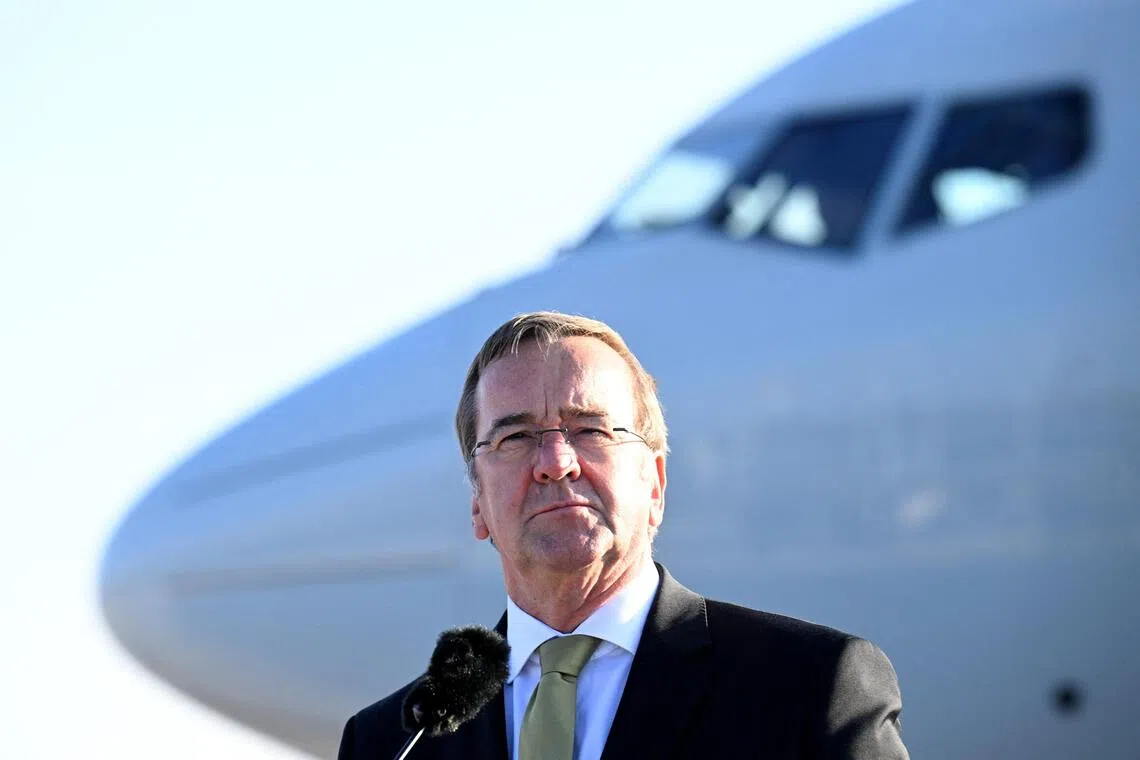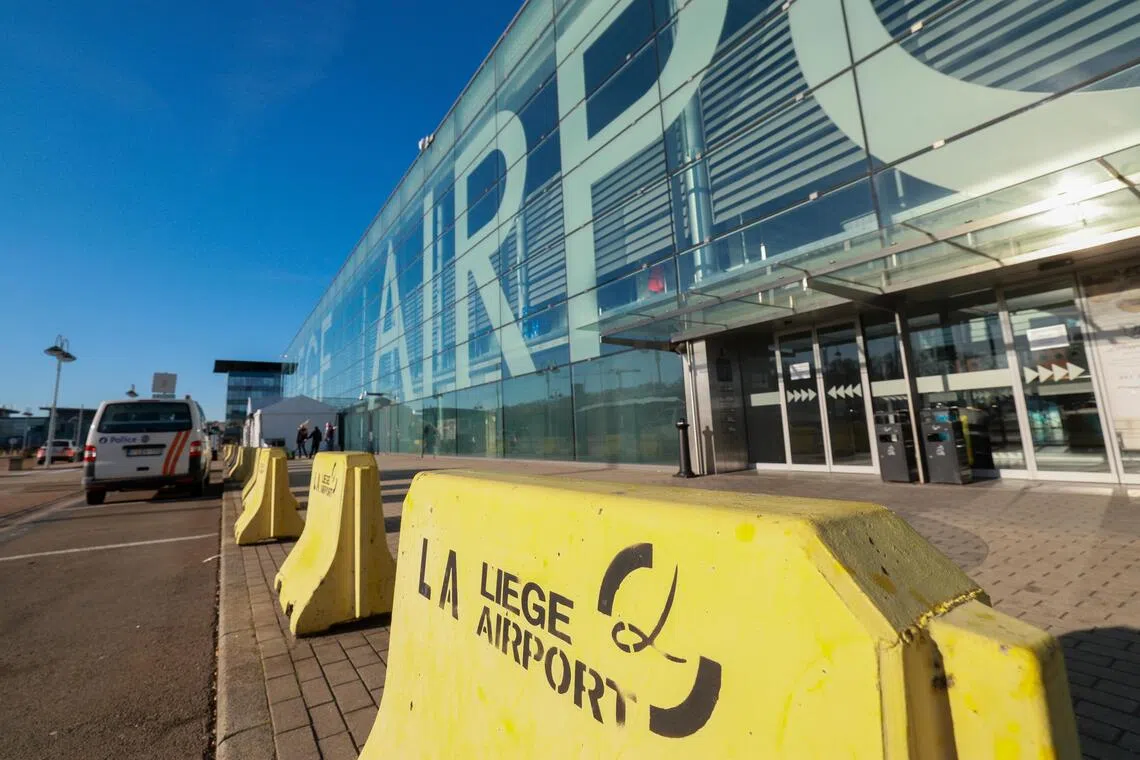Germany links Belgium drone incidents to frozen Russian assets dispute
Sign up now: Get ST's newsletters delivered to your inbox

German Defence Minister Boris Pistorius said in Berlin on Nov 7 that Russia was trying to spread fear in Belgium, which is holding Russian assets frozen over Moscow's war in Ukraine..
PHOTO: REUTERS
Follow topic:
- German Defence Minister Pistorius links Belgian drone incidents to discussions about using frozen Russian assets for Ukraine aid.
- Belgium requires "concrete and solid guarantees" before using assets held by Euroclear, with drone sightings causing airport disruptions.
- Germany is deploying anti-drone units to Belgium and other countries, equipped with sensors and interceptors to counter threats.
AI generated
BERLIN - German Defence Minister Boris Pistorius suggested a link on Nov 7 between recent drone incidents in Belgium and discussions over the use of frozen Russian assets, held by Belgian financial institution Euroclear, to fund a giant loan to Ukraine.
Sightings of drones over airports
Some officials have blamed the incidents around Europe on “hybrid warfare” by Russia.
Moscow has denied any connection with the incidents.
“Yes, we all see this (link). The Belgians as well. This is a measure aimed at spreading insecurity, at fearmongering in Belgium: Don’t you dare to touch the frozen assets. This cannot be interpreted any other way,” Mr Pistorius told reporters at a press conference in Berlin.
The Belgian defence ministry declined to comment on his remarks, but said “that possibility had already been floated in Belgium”.
Belgium’s Prime Minister, Mr Bart De Wever, has said that his country needs concrete and solid guarantees
Belgium’s stance is crucial, as a Belgian financial institution – Euroclear – holds the assets that would be used.
Belgium’s Liege airport resumed flights after a temporary halt due to a drone sighting on Nov 7, in the second such incident this week.

Belgium’s Liege Airport temporarily halted flights on Nov 7 after a drone sighting.
PHOTO: EPA
Drones spotted flying over airports in the capital, Brussels, and in Liege, in the country’s east, forced the diversion of many incoming planes and the grounding of some due to depart on Nov 4.
The Belgian government called an emergency meeting of key government ministers and security chiefs on Nov 6 to address what the defence minister called a coordinated attack.
Drone sightings also forced the temporary closures of airports in several countries including Sweden on Nov 6.
Rapid response teams
The German military is setting up rapid response teams
“These anti-drone units are being established right now,” Lieutenant-General Alexander Sollfrank, who heads Germany’s joint operations command and oversees the country’s defence planning, told Reuters in an interview.
Germany’s defence ministry said late on Nov 6 it was sending counter-drone experts to Belgium after a request from Brussels.
Lt-Gen Sollfrank declined to go into detail when talking about the new counter-drone units, citing operational security, but said a team sent to Copenhagen in October during an EU summit had been equipped with a mix of sensors and effectors.
“They have various systems to spot and counter drones. We have the option, for example, to assume control over a drone and land it at a specific location,” said the lieutenant-general.
The counter-drone experts also have drones at their disposal that can eject nets to catch drones and thus take them down, as well as interceptors that ram hostile drones, he added. REUTERS

